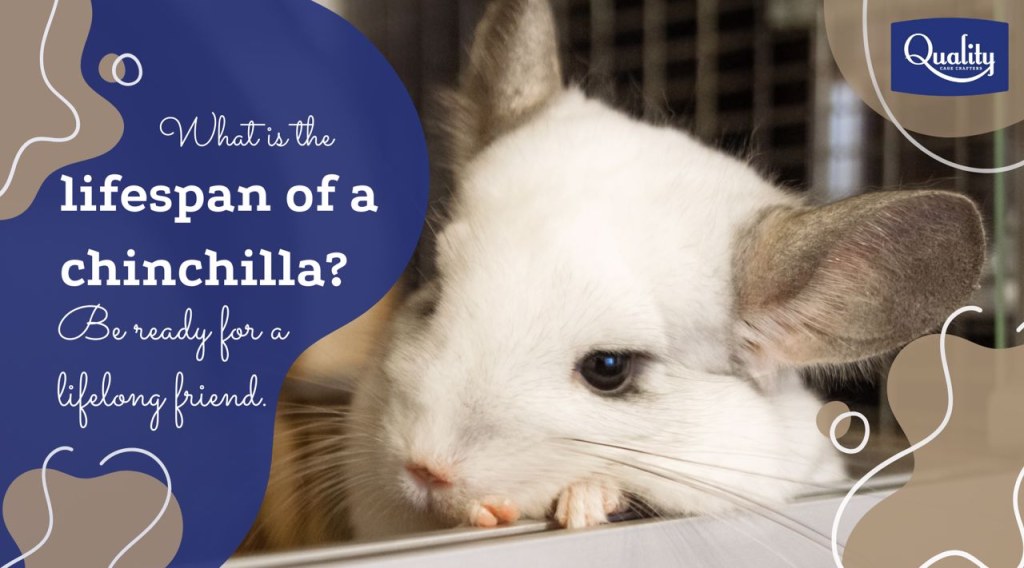Discover The Lifespan Of Chinchillas As Pets: How Long Do Chinchillas Live?
How Long Do Chinchillas Live as Pets?
Introduction
Hello, Pets Lovers! Have you ever wondered how long chinchillas live as pets? Well, in this article, we will dive into the fascinating world of chinchillas and explore their lifespan as beloved companions. Chinchillas are adorable and furry creatures that have gained popularity as pets due to their playful nature and unique characteristics. If you’re considering getting a chinchilla as a pet, it’s essential to understand their lifespan and the responsibilities that come with owning one. So, let’s embark on this informative journey together and discover everything you need to know about how long chinchillas live as pets.
1 Picture Gallery: Discover The Lifespan Of Chinchillas As Pets: How Long Do Chinchillas Live?

Before we delve into the specifics, let’s start by understanding what chinchillas are, who can own them, when they are most active, where they originate from, why they make great pets, and how to take care of them. So, let’s get started!
What are Chinchillas?

Image Source: qualitycage.com
🐭 Chinchillas are small rodents native to the Andes Mountains in South America. They are known for their soft and dense fur, which is highly valued in the fur trade industry. In the wild, chinchillas live in colonies and are primarily nocturnal creatures. However, in captivity, they adjust their habits to fit their owners’ lifestyle.
Chinchillas have an average body length of 9-15 inches and weigh between 1-1.5 pounds. They have large ears, round bodies, and long tails, which help them maintain balance when jumping and climbing.
Chinchillas are social animals and thrive when they have companionship. Therefore, it’s recommended to keep them in pairs or small groups to ensure their mental well-being. They can make excellent pets for individuals or families who are willing to provide them with the care and attention they need.
Who Can Own a Chinchilla?
👤 Owning a chinchilla requires responsibility and commitment. They are not suitable for everyone, so it’s essential to consider a few factors before bringing one into your home.
Firstly, chinchillas have a longer lifespan compared to other small pets. On average, they live between 10-20 years in captivity. Therefore, potential owners should be prepared for a long-term commitment.
Chinchillas also require a spacious and stimulating environment to thrive. They need a large cage with plenty of room for exercise, toys, and hiding places. Additionally, they are active animals that require daily mental and physical stimulation, such as supervised playtime outside of their cage.
Furthermore, chinchillas have specific dietary needs. They require a diet rich in fiber, consisting of high-quality hay, pellets, and limited treats. Owners should be willing to provide a balanced diet and monitor their chinchilla’s health closely.
Lastly, chinchillas are sensitive to temperature and humidity. They prefer cooler temperatures between 60-70°F (15-21°C) and low humidity levels. It’s crucial to ensure their environment is well-ventilated and free from drafts.
If you meet these requirements and are ready to provide a loving and caring home, then owning a chinchilla could be a wonderful experience.
When are Chinchillas Most Active?
⏰ Chinchillas are crepuscular animals, which means they are most active during dawn and dusk. Their natural instincts drive them to be awake and active during these times, mimicking their behavior in the wild.
Unlike other rodents, chinchillas do not adapt well to a nocturnal or diurnal lifestyle. They thrive with a consistent routine, which includes allowing them to sleep during the day and become active during the early morning and evening hours.
If you’re considering getting a chinchilla as a pet, it’s essential to adjust your daily schedule to accommodate their activity patterns. Interacting with them during their active hours will help foster a stronger bond and ensure their well-being.
Where Do Chinchillas Originate From?
🌎 Chinchillas are native to the Andes Mountains in South America. They inhabit areas with rocky terrains and diverse vegetation. Their natural habitat is characterized by cool temperatures, low humidity, and limited access to water.
Chinchillas have adapted to survive in harsh conditions by developing thick fur that provides insulation and protects them from predators. Unfortunately, due to hunting and habitat loss, wild chinchilla populations have significantly declined. As a result, they are now considered an endangered species.
Chinchillas became popular pets in the early 20th century, leading to the establishment of chinchilla farms for fur production. However, as people recognized their unique qualities and endearing personalities, they became more sought after as companion animals rather than sources of fur.
Today, most pet chinchillas are descendants of captive-bred chinchillas. These domesticated chinchillas have been bred for temperament and are commonly available in pet stores and through reputable breeders.
Why Do Chinchillas Make Great Pets?
❤️ Chinchillas make fantastic pets for several reasons:
🐾 They have charming and playful personalities, providing endless entertainment for their owners.
🌈 They come in various colors, allowing owners to choose a chinchilla that matches their preferences.
👂 Chinchillas have excellent hearing, which makes them responsive to their owners’ voices and creates a deeper bond.
💥 They are clean animals and groom themselves regularly, reducing the need for frequent bathing.
😊 Chinchillas can form strong bonds with their owners and enjoy being handled and cuddled when properly socialized.
🌟 They have long lifespans, providing companionship for many years.
🌱 They are herbivores, which means their diet consists mainly of plant-based foods, making it easier to provide a balanced diet.
With their lovable nature and unique qualities, chinchillas can bring immense joy and affection to their owners.
How to Take Care of a Chinchilla?
🏥 Taking care of a chinchilla requires a combination of proper nutrition, suitable housing, regular veterinary care, and mental stimulation. Here are some essential aspects of chinchilla care:
🍽️ Diet: Chinchillas need a diet rich in fiber. They should have unlimited access to fresh hay, a small portion of pellets, and occasional treats. Fresh drinking water should always be available.
🏠 Housing: Chinchillas need a spacious cage with multiple levels, platforms, and hiding spots. The cage should be made of wire mesh to ensure proper ventilation and have solid flooring to prevent injury.
🧹 Hygiene: Chinchillas are clean animals that groom themselves regularly. However, their cage should be cleaned thoroughly once a week to maintain a hygienic environment.
💡 Exercise and Stimulation: Chinchillas require daily exercise outside of their cage. Providing them with a safe and supervised area to explore and play stimulates their physical and mental well-being.
🚿 Dust Baths: Chinchillas have dense fur that requires regular dust baths to keep it clean and healthy. Special chinchilla dust should be provided in a suitable container for them to roll and clean themselves.
⛔ Handling: Chinchillas are delicate creatures that should be handled gently and with care. Proper handling techniques should be learned to avoid causing them harm or distress.
🏥 Veterinary Care: Regular check-ups with an exotic pet veterinarian are essential to monitor your chinchilla’s health and detect any potential issues early on.
Advantages and Disadvantages of Owning a Chinchilla
👍 Advantages:
💖 Chinchillas have a long lifespan, providing companionship for many years.
🏠 They take up less living space compared to larger pets.
😺 Chinchillas are low-maintenance pets that groom themselves and don’t require bathing.
🍽️ Their diet consists mainly of plant-based foods, making it easier to provide a balanced diet.
🧼 They are generally clean animals that do not have a strong odor.
👎 Disadvantages:
🔇 Chinchillas are nocturnal creatures, which means they are most active when you may prefer to be asleep.
🌡️ They are sensitive to temperature and humidity, requiring a controlled environment.
🌱 Chinchillas have specific dietary needs and can be prone to digestive issues if their diet is not balanced.
💸 Initial setup costs for housing, toys, and accessories can be expensive.
🏥 Veterinary care for chinchillas can be specialized and may require finding an exotic pet veterinarian.
Frequently Asked Questions (FAQs)
1. Can chinchillas live alone, or do they need companionship?
🐭 Chinchillas are social animals and prefer to live with companions. They thrive when they have a cage mate or small group to interact and play with.
2. How often should I clean my chinchilla’s cage?
🧹 Chinchilla cages should be cleaned thoroughly once a week to maintain a hygienic environment. Daily spot cleaning may also be necessary to remove any soiled bedding or waste.
3. Are chinchillas good pets for children?
👧 Chinchillas can be great pets for children, but they require proper supervision and handling. Children should be taught how to interact with chinchillas gently and understand their needs.
4. Can chinchillas be litter trained?
🚽 Yes, chinchillas can be litter trained. Using a litter box filled with appropriate bedding material can help encourage them to use specific areas for elimination.
5. Are chinchillas prone to any health issues?
🩺 Chinchillas can be prone to dental problems, gastrointestinal issues, and fur-related conditions. Regular veterinary check-ups and a balanced diet are crucial for maintaining their health.
Conclusion
In conclusion, chinchillas are fascinating pets with a relatively long lifespan compared to other small animals. They can live between 10-20 years when provided with proper care, nutrition, and a suitable environment. Chinchillas make great pets for individuals or families who are willing to commit to their long-term needs and offer them a loving and stimulating home.
If you’re considering adding a chinchilla to your family, remember to educate yourself about their specific requirements and be prepared to provide everything they need to thrive. By understanding their lifespan and taking the necessary steps to ensure their well-being, you can enjoy many joyful years with your furry chinchilla companion.
Disclaimer: The information provided in this article is for educational purposes only and does not replace professional advice. It is always recommended to consult with a veterinarian or experienced chinchilla owner for personalized guidance.
This post topic: Pets



